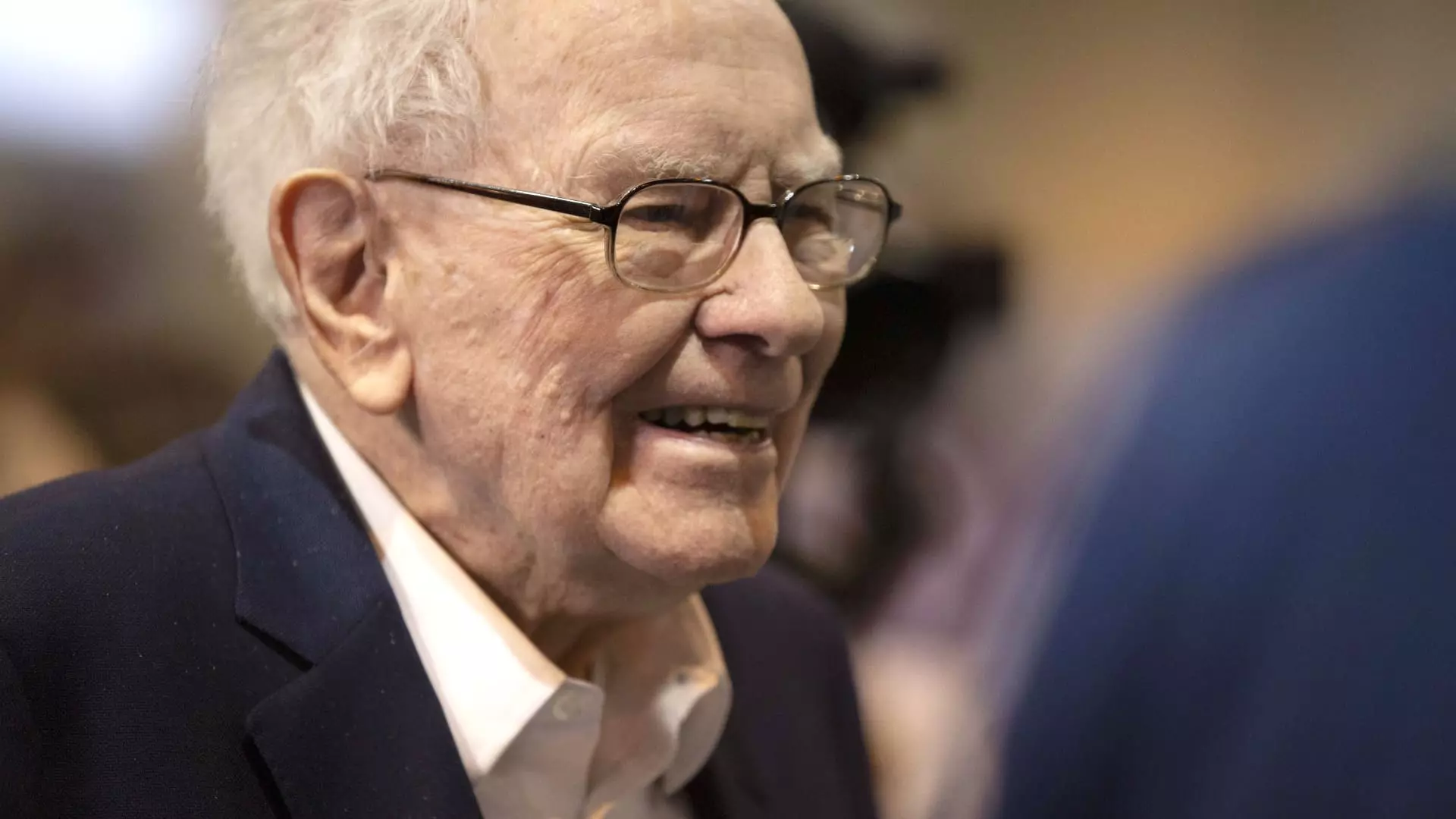Warren Buffett, the venerable chief executive of Berkshire Hathaway, continues to mystify investors with his latest financial maneuvers. The billionaire investor known for his typically aggressive stance on equities has recently adopted a conservatively defensive posture that has raised eyebrows. With an eye-catching cash surplus of $334 billion—an all-time high for the conglomerate—Buffett’s latest quarterly activities, including significant stock sell-offs, suggest a calculated shift that warrants a closer examination.
For someone with a storied reputation as a fierce equity champion, Buffett’s current strategy appears paradoxical. Traditionally, Buffett has been celebrated for identifying undervalued stocks and for maintaining a long-term view on the stock market. However, amid a backdrop of rising interest rates and increased market volatility, Buffett’s defensive actions tell a different story. In his highly anticipated annual letter, Buffett asserts his continued affection for equities despite selling off over $134 billion in stocks in 2024 alone, with major reductions in Berkshire’s stakes in Apple and Bank of America. This raises a significant question: Is Buffett signaling a fundamental change in investment philosophy, or is he merely adapting to external market conditions?
While he insists that his preference for equities remains unchanged, it’s perplexing why he would accumulate cash at a junction where many analysts anticipate falling interest rates. Traditionally, investors would shy away from cash-heavy strategies in favor of higher-yielding equities. Buffett’s statement that “the great majority of your money remains in equities” might provide reassurances, yet it also seems to conflict with his actions. It reveals a tension between his historical investing habits and the current marketplace.
Buffett’s hesitance to invest more aggressively comes in the wake of a significantly bullish market. The S&P 500 has surged by over 20% for two consecutive years and is up another 5% so far in the current fiscal year. So why has Buffett chosen to remain largely inactive, refraining even from repurchasing Berkshire shares amid the backdrop of increasing operating earnings? Such queries flood the minds of shareholders who find themselves growing restless with Buffett’s unusually cautious approach.
The ever-fluctuating market dynamics, including volatility stemming from political changes and fears of an economic slowdown, could indeed be motivating Buffett’s current strategy. Investors are generally on edge, contemplating what a changing political environment, including new policies from President Trump, might mean for economic stability. Buffett, acutely aware of these factors, might be positioning himself defensively to navigate uncertain times, even as he hints at the lack of attractive investment opportunities.
Buffett’s annual letter also includes a nod toward his designated successor, Greg Abel. By comparing Abel to the legendary investor Charlie Munger, Buffett appears to be grooming him for more significant responsibilities as Berkshire’s investment strategies evolve. Abel’s involvement signifies a generational shift that could influence how Berkshire navigates through its immense cash reserves going forward.
The implications of this leadership transition cannot be overlooked. Some analysts speculate that Buffett’s decision to pare down positions and build-up cash may not merely be a market call, but rather a strategic decision to ready Berkshire Hathaway for Abel’s stewardship. The question remains whether this shift represents a short-term tactical move for Buffett or a long-term strategic vision for the future of the company.
Interestingly, Buffett did express a degree of optimism in one specific area: the five Japanese trading companies he began investing in six years ago. He indicated that shareholders could see Berkshire investing further in these enterprises. This suggests that even amidst his cautious stance, Buffett is still capable of identifying strategic opportunities that align with his long-term vision. It also hints at an interesting diversification strategy that stands apart from the traditional U.S. equity focus.
Warren Buffett’s recent strategies invite a multifaceted analysis. His colossal cash reserve juxtaposed against his history of aggressive equity investment raises critical questions for stakeholders. While his commitment to stocks has not wavered, the current market environment, coupled with a new leadership phase, offers a compelling landscape that may redefine Berkshire Hathaway’s approach to investing moving forward. As seasoned investors take stock of Buffett’s latest moves, the need for patience in the face of evolving economic landscapes becomes more pronounced than ever.

Leave a Reply